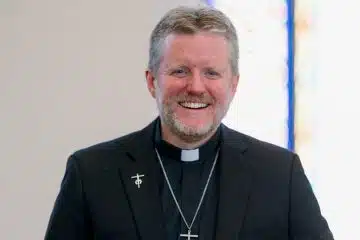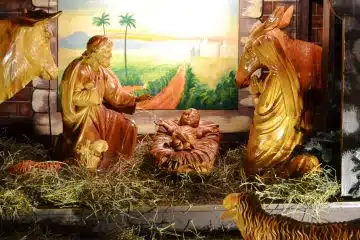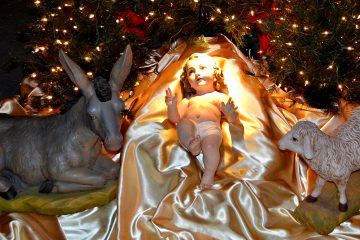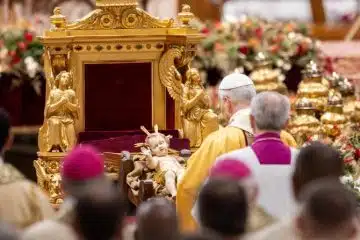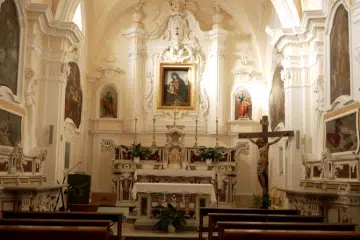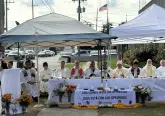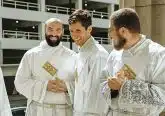Finding Truth in Fiction: The Importance of Literature for Life
In August 2024, Pope Francis promulgated his Letter on the Role of Literature in Formation. He explains that he wrote the letter to promote “the value of reading novels and poems as part of one’s path to personal maturity.” Reading fiction, the Holy Father argues, “can help us weather the storm” in “moments of weariness, anger, disappointment or failure.” A good story or poem “may … open up new interior spaces” that can help us in our spiritual growth, he continues. Literature speaks to “our deepest desires in this life” by engaging “our concrete existence, with its innate tensions, desires and meaningful experiences.”
In other words, Pope Francis encourages us to read fiction for the truth that can be found there. As early as we could read books (or have them read them to us), we have been encouraged to find the “moral” in the story. Whether the medium was a fairy tale, poem or novel, we were taught to seek the truth the author intended to communicate. While the people, names, places and events might be inventions, their purpose was to convince us that some assertions are true, distinct from their false mirror images. Good fiction is not a retreat from reality, but rather a deeper expedition into the truth it holds. To paraphrase
G.K. Chesterton, watching imaginary dragons be slain in fairy tales can help us forge the weapons to conquer our real dragons.
Of course, good literature must also be entertaining, else it will not hold our attention. But if fiction merely entertains or titillates, it misses the point both of the writing and the reading. When the proper balance is struck (by both author and reader), we discover paths toward truth that we otherwise might never experience. As Pope Francis explains, a “literary work is thus a living and ever-fruitful text, always capable of speaking in different ways and producing an original synthesis on the part of each of its readers.” Reading good literature “allows … us to grow inwardly,” the pope continues, “so that each new work we read will renew and expand our worldview.” Literature “engages our concrete existence, with its innate tensions, desires and meaningful experiences.”
My own moral and spiritual concrete existence has been enriched by the experience the pope describes. While the examples are too numerous to count, I can illustrate this through the brief mention of two: a novel and a short story.
FATHERS AND SONS
Cormac McCarthy’s novel The Road makes me cry every time I read it. Set in an indefinite future, The Road is ostensibly an apocalyptic novel, in which McCarthy raises alarms about the human propensity toward violence and our means of exercising it in horrifying ways. Like many such novels, it is set in a desolate landscape, in which there are few survivors from a supposed nuclear annihilation. Among the few people who remain, life is reduced to the most extreme and desperate means of survival.
But while McCarthy clearly intended to write a novel about large political ideas, my own experience of the novel is found in the relationship between the two main characters, a father and his son. As the proud father of four sons, I learned from The Road truths about the strength of the connection between fathers and sons (this is not, of course, to diminish other parent/child relationships). But that’s not what The Road is about. Rather, McCarthy acutely illustrates the bond of father and son that is somehow distinctly masculine in its sensitivity. Can I explain this fully? Of course not. That’s why you need to read the novel.
EUCHARIST AND GRATITUDE
Perhaps the most important distinction between us Catholics and most non-Catholic Christian traditions is our devotion to the Eucharist as the Real Presence of Christ. In a deeply mysterious way, we believe the essence of bread and wine is transformed into the sacred Body and precious Blood of Christ. But, of course, the “accidents” of the bread and wine are unchanged. This distinction is the subject of Graham Greene’s short story, “The Hint of an Explanation.”
Set in the 1940s, the story is mostly a conversation between two men on a dark, cold train chugging through the English countryside. One man describes an event he experienced as a young altar server in his Catholic parish. A sad, angry and frightening man attempted to bribe him to sneak a consecrated host from Mass and bring it to the man. The man’s purpose was to demonstrate that the bread was no different from any bread that he baked in his bakery, and thus that the boy’s faith was a sham. In unfolding the story, Greene gives us a glimpse of truth about the transforming power of the Eucharist. Spoiler alert: It doesn’t end the way you are thinking.
In his Letter on the Role of Literature in Formation, Pope Francis notes that readers participate in a story by “enlarging its scope through their imagination.” Put another way, the veracity of literature emerges as it tells us something true about ourselves. This is why the Holy Father beckons us to enrich our real lives by engaging the fictional worlds of great literature.
 Dr. Kenneth Craycraft holds the James J. Gardner Chair of Moral Theology at Mount St. Mary’s Seminary & School of Theology. He is the author of Citizens Yet Strangers: Living Authentically Catholic in a Divided America.
Dr. Kenneth Craycraft holds the James J. Gardner Chair of Moral Theology at Mount St. Mary’s Seminary & School of Theology. He is the author of Citizens Yet Strangers: Living Authentically Catholic in a Divided America.
This article appeared in the February 2025 edition of The Catholic Telegraph Magazine. For your complimentary subscription, click here.


